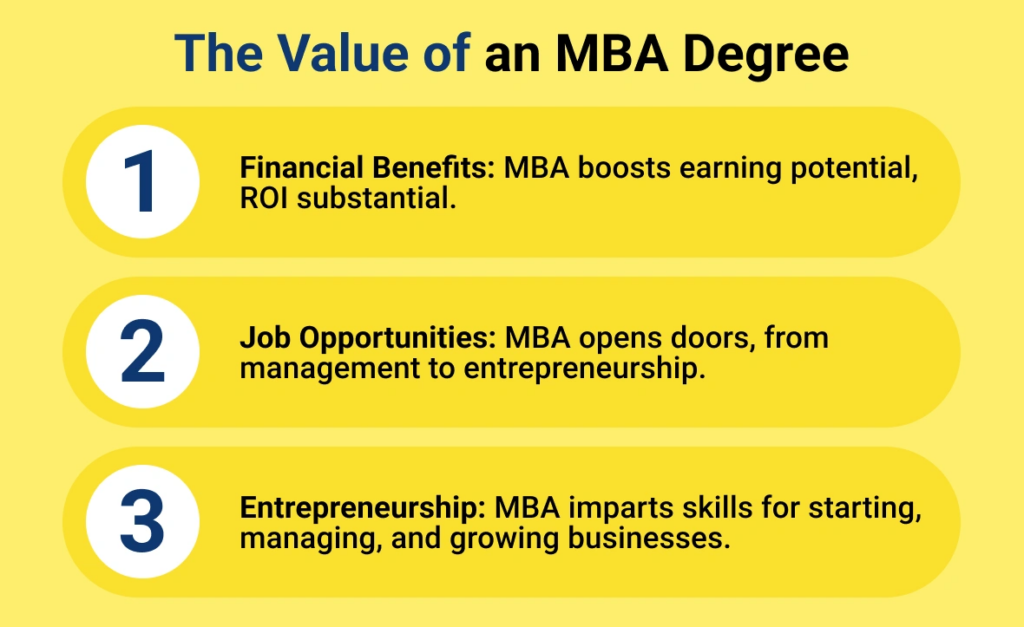Pursuing a Master of Business Administration (MBA) is a significant decision that can profoundly impact your career trajectory. As the business landscape becomes increasingly competitive, an MBA offers the knowledge, skills, and networking opportunities necessary for success. This guide outlines the essential steps and considerations for prospective MBA candidates.
1. Understanding the Value of an MBA

An MBA is designed to equip students with a comprehensive understanding of business management principles. Here are some key benefits:
- Career Advancement: An MBA can qualify you for higher-level positions in management and leadership.
- Increased Earning Potential: Graduates often see significant salary increases; average salaries for MBA holders can exceed $115,000 annually.
- Skill Development: Programs focus on critical skills such as strategic thinking, leadership, financial analysis, and marketing.
- Networking Opportunities: MBA programs provide access to a vast network of alumni and industry professionals.
2. Choosing the Right Program
Selecting the right MBA program is crucial. Consider the following factors:
- Program Reputation: Research rankings and reviews of various institutions to find a program that aligns with your career goals.
- Specializations Offered: Look for programs that offer specializations relevant to your interests, such as finance, marketing, or entrepreneurship.
- Format: Decide whether you prefer a full-time, part-time, or online MBA program based on your current commitments and lifestyle.
- Location: Consider whether you want to study locally or abroad, as this can affect networking opportunities and job placements.
3. Admission Requirements
Most MBA programs have specific admission requirements that may include:
- Educational Background: A bachelor’s degree from an accredited institution is typically required.
- Entrance Exams: Commonly accepted exams include the GMAT, GRE, CAT, or other standardized tests depending on the region and school.
- Work Experience: Many programs prefer candidates with professional experience; typically, two to five years is recommended.
- Application Materials: Prepare a strong application that includes transcripts, letters of recommendation, a personal statement, and a resume.
4. Preparing for Entrance Exams

If your chosen program requires standardized test scores, here are some tips for preparation:
- Understand the Format: Familiarize yourself with the structure of the exam you will take (e.g., GMAT or GRE).
- Study Resources: Utilize prep books, online courses, and practice tests to strengthen your knowledge.
- Time Management: Create a study schedule that allows ample time to cover all topics without cramming.
5. The Application Process
Once you have prepared your materials and taken any required exams, follow these steps:
- Research Programs: Identify schools that align with your career goals and values.
- Submit Applications: Complete applications through each school’s portal before deadlines.
- Prepare for Interviews: Some programs may require interviews; practice common questions and articulate your goals clearly.
6. Financing Your MBA
Financing an MBA can be challenging. Consider these options:
- Scholarships and Grants: Research available scholarships specific to MBA candidates.
- Student Loans: Look into federal and private loan options but be mindful of repayment terms.
- Employer Sponsorships: Some employers offer tuition reimbursement or sponsorship for employees pursuing advanced degrees.
7. Making the Most of Your MBA Experience
Once enrolled in an MBA program:
- Engage Actively: Participate in class discussions, group projects, and networking events.
- Leverage Resources: Utilize career services offered by your school for internships and job placements.
- Build Relationships: Network with classmates, professors, and alumni to expand your professional connections.
Also Read : How to finance your MBA without going into debt
Conclusion
Pursuing an MBA is a transformative journey that can enhance your career prospects significantly. By understanding the value of an MBA, choosing the right program, preparing effectively for entrance exams, navigating the application process, financing your education wisely, and making the most of your experience, you can set yourself up for success in today’s competitive job market.
Frequently Asked Questions (FAQs)
1. What are the benefits of obtaining an MBA?
An MBA provides enhanced career opportunities, increased earning potential, skill development in various business areas, and valuable networking connections.
2. How long does it typically take to complete an MBA?
Most full-time MBA programs take about two years to complete; part-time or online programs may take longer depending on course load.
3. Are there specialized MBAs available?
Yes! Many programs offer specializations such as finance, marketing, entrepreneurship, healthcare management, and more.
4. What entrance exams are commonly required for MBA programs?
Common entrance exams include GMAT, GRE, CAT (in India), XAT, MAT, SNAP among others depending on geographical location.
5. Can I pursue an MBA while working full-time?
Yes! Many institutions offer part-time or online programs designed specifically for working professionals.
